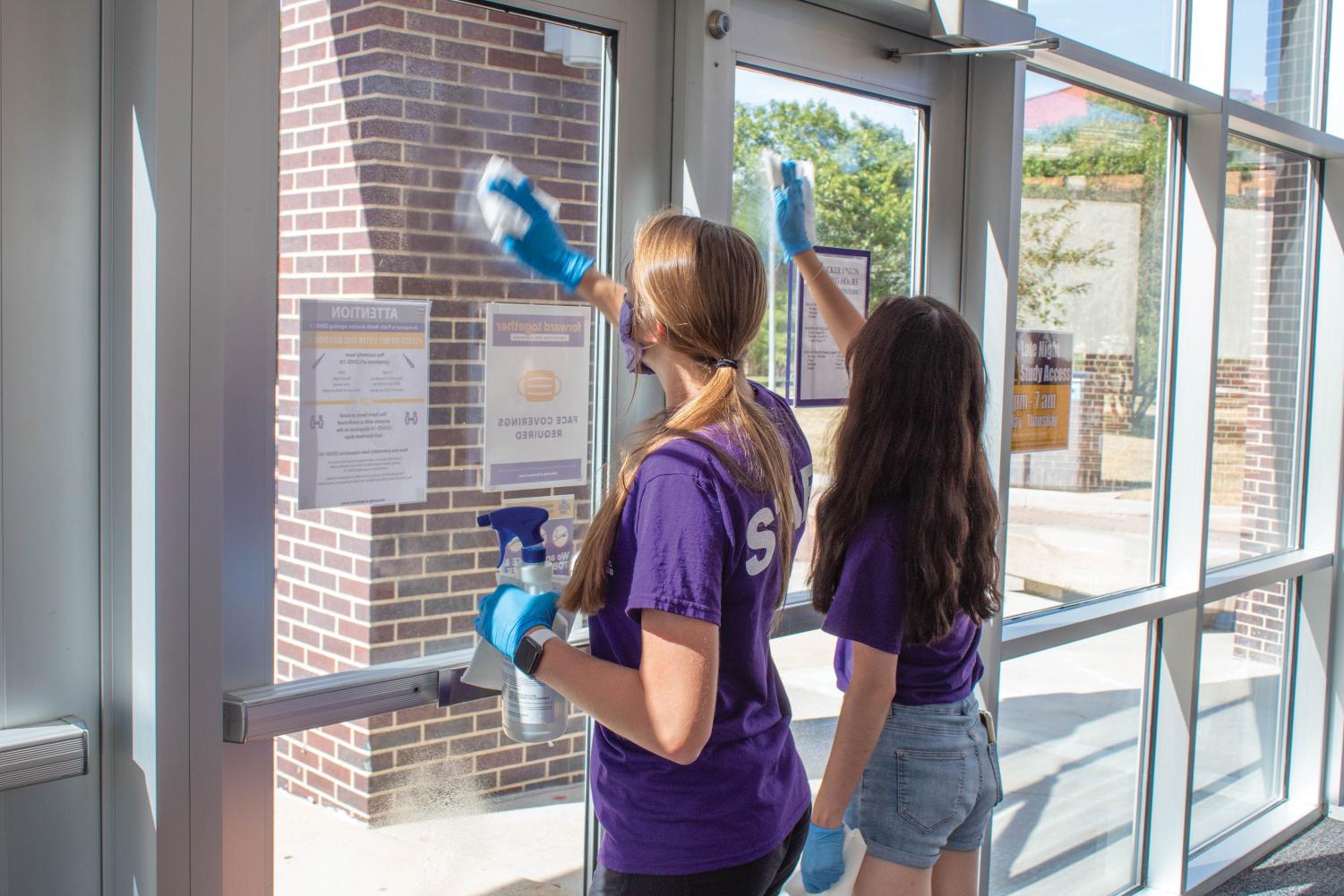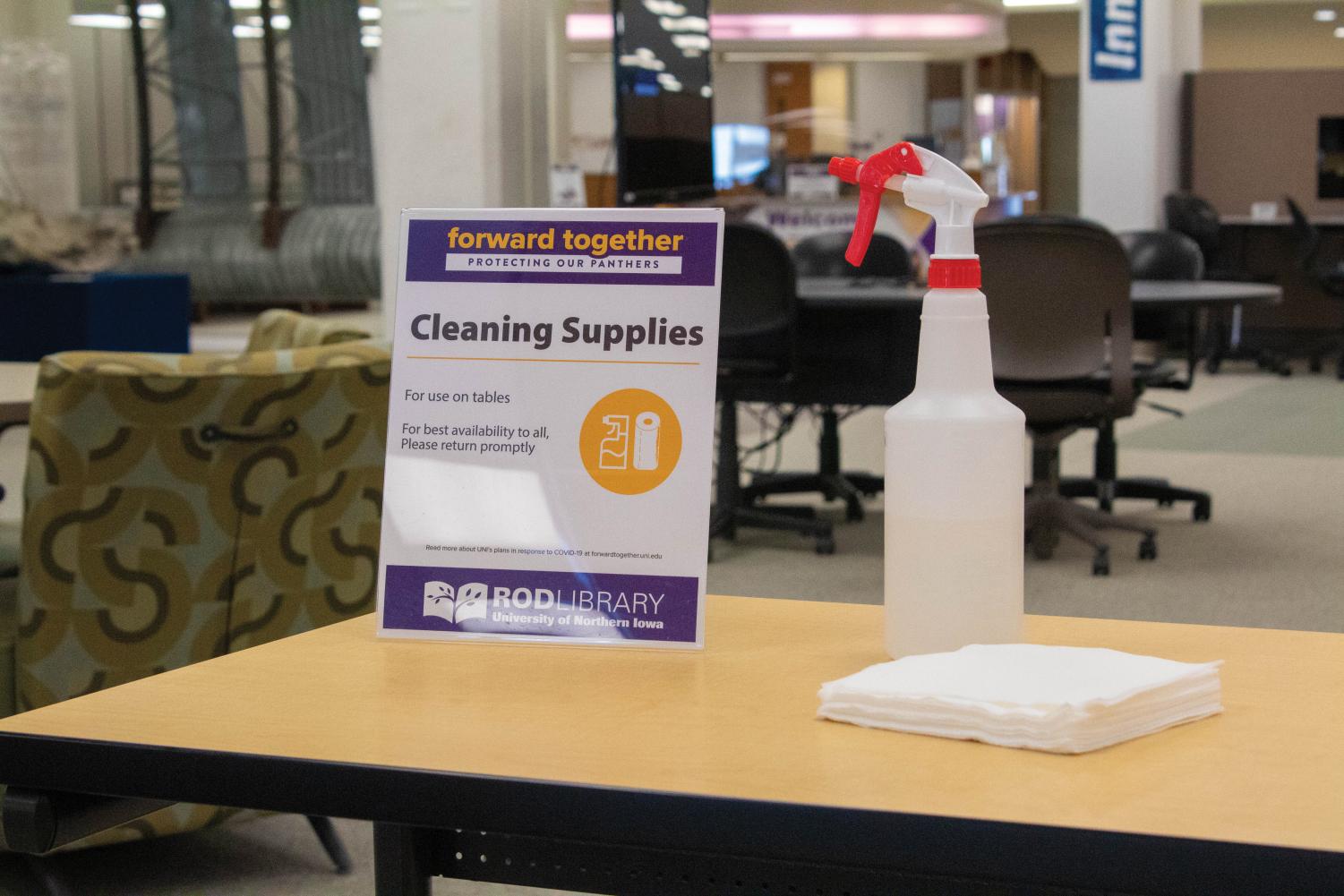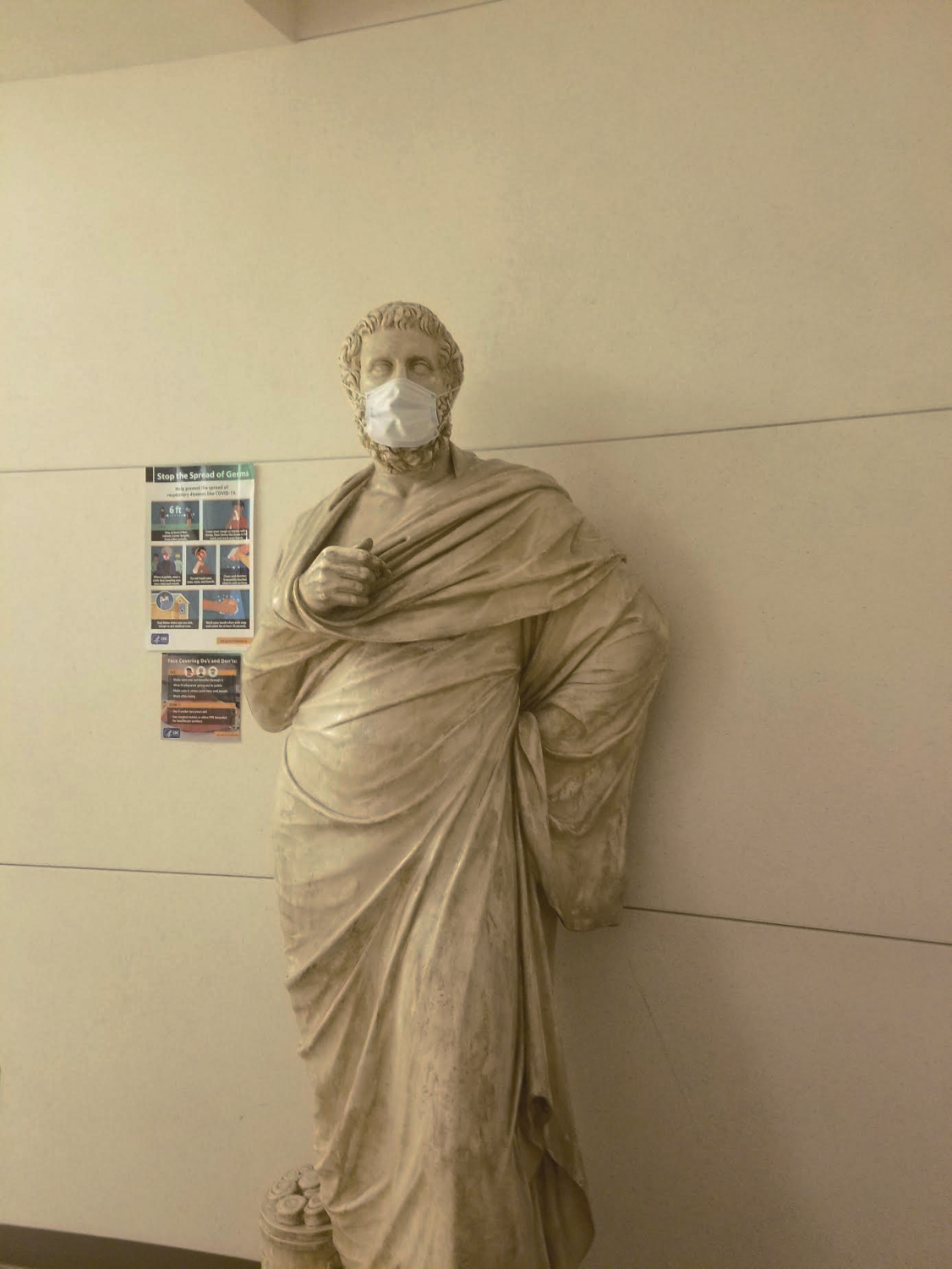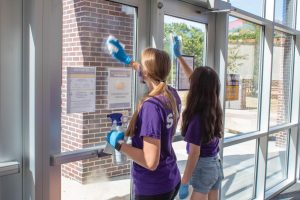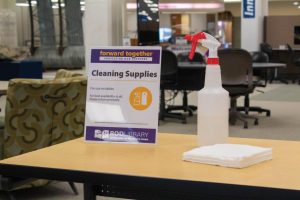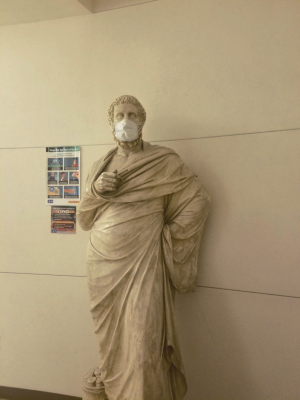New procedures keep campus clean
Aug 20, 2020
During the midst of a pandemic, there really is no such thing as too clean; UNI, it seems, has taken that to heart. Even before the much-debated return to campus, both students and staff had experienced firsthand the expectations and stress the university placed on cleanliness. Every student was required to complete the Protecting Our Panthers: COVID-19 Training before returning to campus for the fall. A majority of staff, both full and part-time, were also given additional training that included new university protocol for keeping campus clean.
Amelia Cheah, a Dining Service Assistant at the Maucker Union Food Court and a senior majoring in psychology, described the additional training as a kind of mini orientation.
“There was…[training] to tell us about what is going on, what are the changes, what is expected,” Cheah said. “Like, we’re supposed to wash our hands before we go to work and every so often just wash our hands. Just to make sure everything’s clean.”
The training also covered all additional tasks required of a Dining Service Assistant at Maucker Union: these include spraying and wiping down tables with neutral disinfectant once they’re done being used, flipping over a card provided on each table to indicate it’s cleanliness, disinfecting door handles to the kitchen and instructing customers on how to execute self-checkout for their meals. When asked about the challenges of her job now mid-pandemic, Cheah replied with a polite laugh saying, “I think one of the major challenges is, like, getting used to it.”
The changes made across UNI’s campus are necessary, but many in number to workers like Cheah, who echoed this sentiment in a comparison between her job at the food court pre-COVID-19 and present day.
“It’s not to say there is less work [normally], but [now] there is extra work,” said Cheah. “But [the Maucker Union staff] take turns to, sort of, do our duties.”
While in Cheah’s case, sharing the workload with fellow staff members is a necessary solution for the effect COVID-19 has had on her job; in another case, a worker feels the pressure to endure a serious time crunch and a multitude of now essential tasks.
“It’s hard on staff. But [the student custodians] help a lot,” said Kathy Benson, who has been a custodian at UNI for five years now. She went on to explain that despite the work being split up for the custodial staff by assigned building and designated area, it was still very time-consuming. The disinfection process, in particular, requires multiple steps and needs to be checked and redone often.
“I already know the jobs I have to do,” said Benson. “But they came in and showed us what order everything needs to be done in and how to do it.” Benson sighed as she recalled the custodial staff’s training, which focused heavily on the changes to the university’s standard cleaning regimen. “They had to change everything…We have to do more detailed cleaning…disinfecting tables and door handles. We have to go back and check them just about every hour.”
The custodial staff is made to balance these new tasks alongside their general cleaning duties. They ensure the floors, and bathrooms are clean, and collect and take out garbage for the entire campus which leaves Benson with the feeling that the staff is stretched a little thin. Benson commented that she often feels the heat, presumably not just from the masks students and staff must wear in any campus building, but from the tight time frame she feels to complete the list of jobs that now include those that are COVID-19 specific.
But it’s not just staff that feel the effects of the pandemic on their regular routines. Students, too, have noticed the sudden appearance of things like hand sanitizer stations located by nearly all exits and entrances to buildings and disinfectant bottles and wipes at printing stations and throughout the library. Class sizes have shrunken, and classrooms are situated to give students their 6 feet of space. Bathroom doors in highly populated areas around campus are left propped open to lessen contact to door handles. And, throughout the day, tours for prospective students and their parents are broken up into significantly smaller groups than they have been in the past. It’s clear that UNI’s expectations for cleanliness extends to its students as well. So how can the average student do their part?
Both Benson and Cheah agree on one simple way for students to do this: wear your masks. This not only protects the student, but also those around them, including the staff who work hard to ensure their safety. Other ways for students to promote cleanliness across campus is for them to use what supplies are provided for them. Spray and wipe printing stations, and if you eat at or use a table in the Union flip the table card to dirty after use. These actions do a little to lessen the load of custodial staff across campus.
Cleanliness on campus is the combined effort and responsibility of students, student workers and full-time staff. And, as Cheah said, the biggest challenge for everyone is just getting used to the new state of our university. But she had the right idea, the best thing for everyone who shares UNI’s campus to do, is to band together and do our individual parts.


